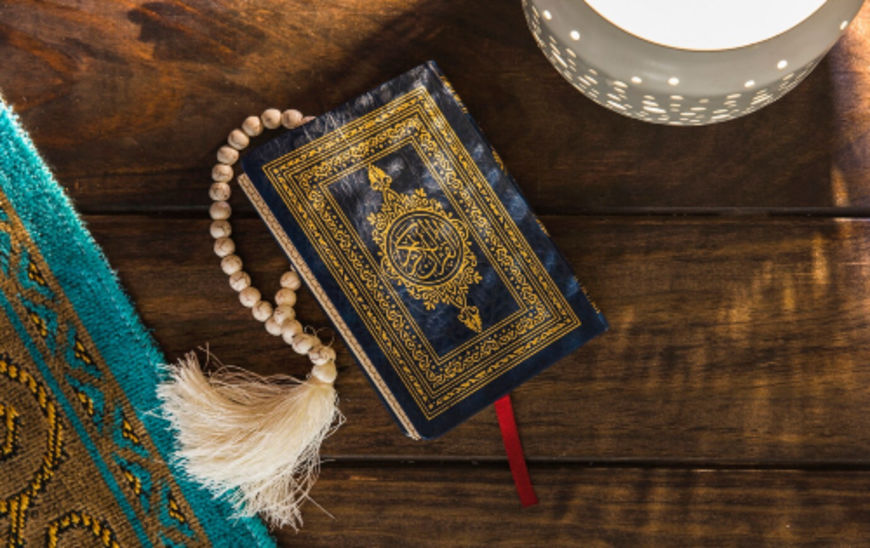
The Quran is the holy book of Islam, believed to be the word of God (Allah) as revealed to the Prophet Muhammad over a period of approximately 23 years. It is composed of 114 chapters (surahs), each containing a varying number of verses (ayahs). The Quran serves as the ultimate source of guidance for Muslims, addressing aspects of life including theology, morality, law, and personal conduct.
Surat Al-Fatihah, also known as "The Opening," is the first chapter of the Quran. It is one of the most important and frequently recited surahs in Islamic practice, serving as the introduction to the Quran's message. Consisting of seven verses, it is a concise encapsulation of the core beliefs and values of Islam.
Historical Context
Surat Al-Fatihah is believed to have been revealed in Mecca, early in the Prophet Muhammad’s prophetic mission. Its early revelation underscores its fundamental role in establishing the core tenets of Islamic faith.
As the first surah, Al-Fatihah holds a unique position in the Quran. It is often referred to as the "Mother of the Book" (Umm al-Kitab) because of its encompassing nature and its foundational role in the daily life of Muslims.
In the early Islamic community, Al-Fatihah was central to daily worship and religious practice. It was among the first surahs taught to new converts and used extensively in both private and communal prayers.
The use of the Muslim rosary, known as the Misbaha or Tasbih, also played a significant role in the devotional practices of early Muslims. These prayer beads are used to keep count while reciting the 99 names of Allah, specific prayers, and phrases of remembrance (dhikr). This practice complemented the recitation of Al-Fatihah and other prayers, fostering a deeper spiritual connection and mindfulness in worship.
Structure and Content of Surat Al-Fatihah
Surat Al-Fatihah consists of seven verses, arranged in a way that presents a holistic view of a Muslim's relationship with Allah. The structure is both simple and profound, making it accessible and memorable for believers.
Themes and Key Messages:
- Praise and Gratitude to Allah: The surah begins with praise for Allah, acknowledging His mercy and benevolence. This sets the tone for the entire Quran, emphasizing the importance of gratitude.
- Recognition of Allah's Sovereignty and Mercy: The surah recognizes Allah as the "Lord of the Worlds," highlighting His absolute sovereignty and merciful nature. This dual emphasis on power and compassion is central to Islamic theology.
- Request for Guidance: The concluding verses focus on the believer's plea for guidance, a straight path, and protection from misguidance. This reflects the Muslim's continuous need for divine assistance in navigating life.
Theological Significance
Surat Al-Fatihah reinforces the concept of Tawhid, the oneness of Allah, which is the cornerstone of Islamic belief. It affirms that Allah alone is worthy of worship and supplication.
The surah mentions key attributes of Allah, including His mercy (Ar-Rahman, Ar-Rahim) and His role as the Master of the Day of Judgment (Maliki Yawmid-Din). These attributes are pivotal in understanding the nature of Allah in Islam.
The surah encapsulates the intimate relationship between Allah and His followers. It portrays Allah as a compassionate guide and the believer as a devoted servant seeking His grace and direction.
Liturgical Importance
Surat Al-Fatihah is recited in every unit (rak'ah) of the Muslim daily prayers (Salah). Its repeated recitation underscores its significance and the central place it occupies in Islamic worship.
Beyond the daily prayers, Al-Fatihah is recited in various other religious contexts, including during funerals, in personal supplications (duas), and at the beginning of significant religious ceremonies, reflecting its versatile and foundational role in Islamic life.
The surah encourages Muslims to approach Allah with humility, recognizing their dependence on His mercy and guidance. This fosters a sense of devotion and submission to the divine will.
Al-Fatihah emphasizes the importance of seeking Allah's guidance in leading a righteous and ethical life. It reminds believers of the continuous need for divine direction to stay on the correct path.
The surah highlights human reliance on Allah for guidance and support, encouraging a constant awareness of one’s dependence on the Creator. This reflection is central to the spiritual growth of a believer.
The Qur'an, the holy book of Islam, does not specifically mention the use of the rosary (also known as "misbaha" or "tasbih" in Arabic) as a practice. However, the concept of remembering and glorifying God (dhikr) is emphasized throughout the Qur'an.
Muslims often use a misbaha to count the recitations of the 99 names of Allah or other phrases of dhikr, such as "SubhanAllah" (Glory be to Allah), "Alhamdulillah" (Praise be to Allah), and "Allahu Akbar" (Allah is the Greatest). The practice of using beads for this purpose is a tradition that developed later and is not explicitly detailed in the Qur'an.
Surat Al-Fatihah, as the opening chapter of the Quran, holds immense significance in Islam. It encapsulates key theological concepts, highlights the intimate relationship between Allah and His followers, and plays a crucial role in daily worship and other religious practices. Its themes of praise, gratitude, and supplication for guidance provide spiritual and moral direction to Muslims, making it a timeless and essential component of Islamic faith and practice.




 Jewelry
Jewelry Silver amber jewelry
Silver amber jewelry Amber pictures
Amber pictures Souvenirs
Souvenirs